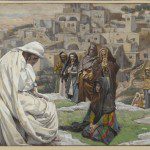“Render unto Caesar what belongs to Caesar and to God what belongs to God.”
– Matthew 22:21
He was toying with him, the Cardinal was.
In Robert Bolt’s iconic play, A Man for All Seasons, it was late in the evening. Far away from the demands of London, Sir Thomas More was reclining in his comfortable Chelsea home when the summons came. Cardinal Wolsey, King Henry VIII’s Lord Chancellor, requested the presence of Sir Thomas at once on a matter of “the King’s business”. Grumbling would ensue among Thomas’ family and friends at the late hour and the questionable merits of the request, but the dutiful Sir Thomas only smiled. He gathered his effects, offered a family prayer to God (with special blessing for the King) and briskly boarded the waiting boat.
It was one o’clock in the morning when he finally found himself standing before Cardinal and Lord Chancellor Wolsey at Hampton Court. And the Cardinal offered meager eye contact. Despite the late hour, he made little of Thomas’ efforts to be responsive.
“It’s half past one. Where have you been?”
(A bell strikes one)
“One o’clock, your Grace. I’ve been on the river.”
And so the conversation would begin. While the Cardinal was aloof and petulant, Sir Thomas was engaged and earnest. The “King’s business” had seemingly brought them to an impasse. For this business was the delicate effort to achieve papal approval for the annulment of King Henry VIII’s marriage to Queen Catherine of Aragon. Once this was accomplished, the King would be free to marry his mistress, Anne Boleyn, and bring forth an heir to the throne.
But this wasn’t proving to be easy.
After all, a special dispensation had been obtained (“for state reasons”) from the Pope for the King to marry his deceased brother’s widow, Catherine, but now, as Sir Thomas would so puckishly state,
“Now we are to ask the Pope to – dispense with his dispensation, also for state reasons?”
Sir Thomas More, respected judge, devout Catholic and honorable friend of the King had difficulty with the whole affair. Marriage is sacramental and, thus, indissoluble. The Church is the authority on matters moral and thus embraces even the headstrong King with its wise precepts. As such, man’s devious trifling with eternal verities courts wickedness and perdition. But the Cardinal saw it differently,
“You’re a constant regret to me, Thomas. If you could just see facts flat on, without that horrible moral squint; with just a little common sense, you could have been a statesman.”
Wow.
This line really caught me.
Because this is what the world says to us day after day after day.
“Be honest.” “Really think about it.” “Get real.”
Over and over again, we are told that – in myriad daily circumstances – our faith and morality only cloud our judgement instead of clarifying it. We need to be detached, we are told. We need to come down to earth, we are implored. We hear the constant explicit and implicit refrain: Truth is what you want it to be, not some uncompromising monitor. Conscience is fine and good as long as it doesn’t get in your way. To be wise and successful we are to not only be in the world, but of the world too. Or, once again, as the Cardinal said,
“If you could just see facts flat on, without that horrible moral squint; with just a little common sense, you could have been a statesman.”
It reminds me of one who once tempted another to forsake his “horrible moral squint”,
Then he took [Jesus] up and showed him all the kingdoms of the world in a single instant.
The devil said to him, “I shall give to you all this power and their glory; for it has been handed over to me, and I may give it to whomever I wish. All this will be yours, if you worship me.”
What was Sir Thomas More’s response to the Cardinal’s derisive jab?
“Well…I believe, when statesmen forsake their own private conscience for the sake of their public duties…they lead their country by a short route to chaos.”
But, surely – surely – Christ said it best,
“It is written:
‘You shall worship the Lord, your God,
and him alone shall you serve.’”
Yes. Yes.
Perhaps a moral squint isn’t so horrible after all.
————————————-
Photo credit: Pixabay













